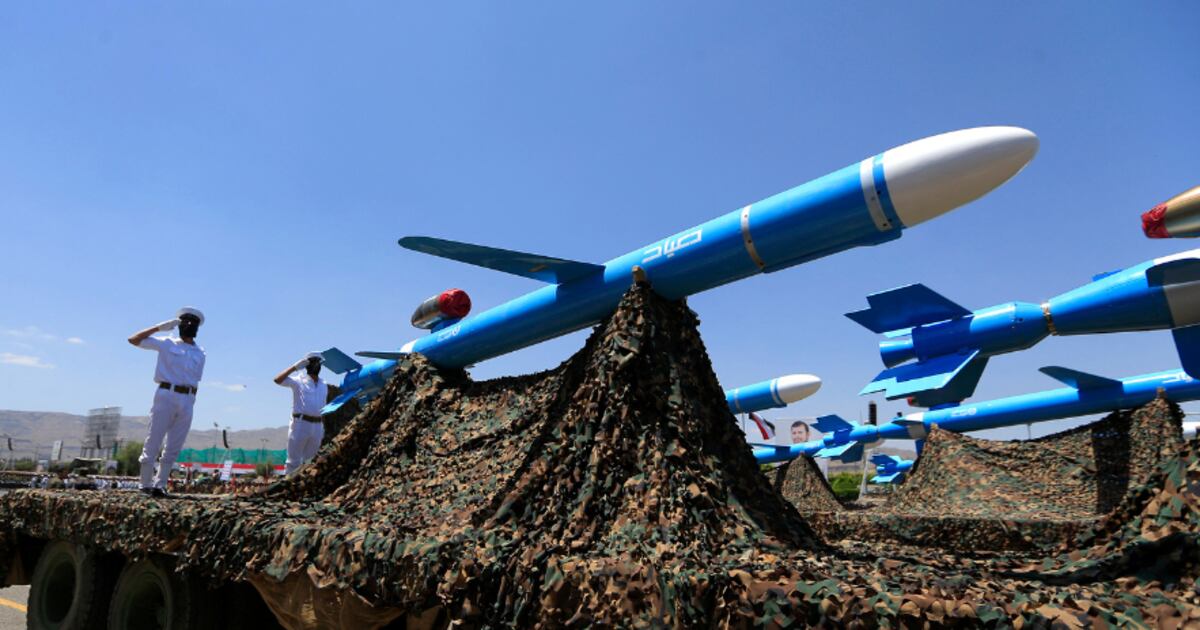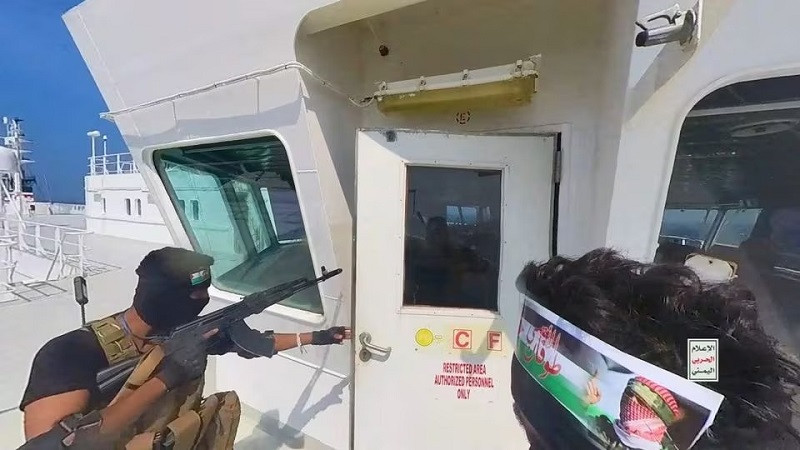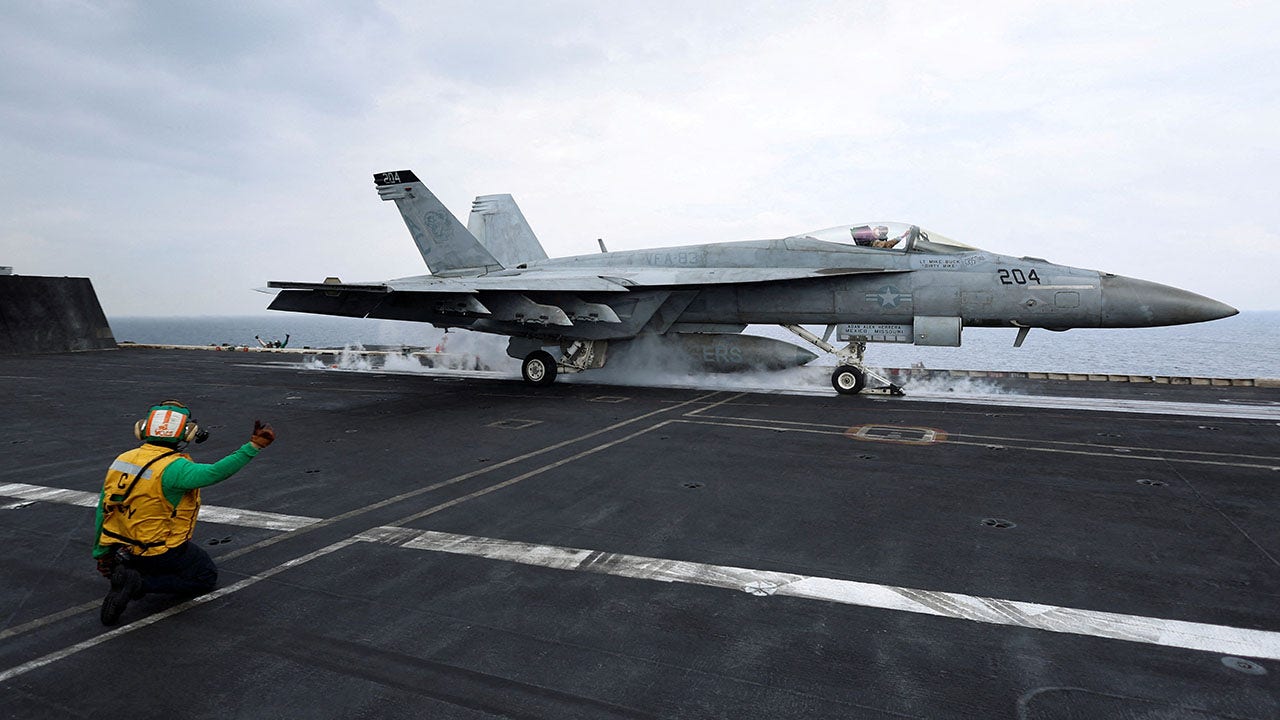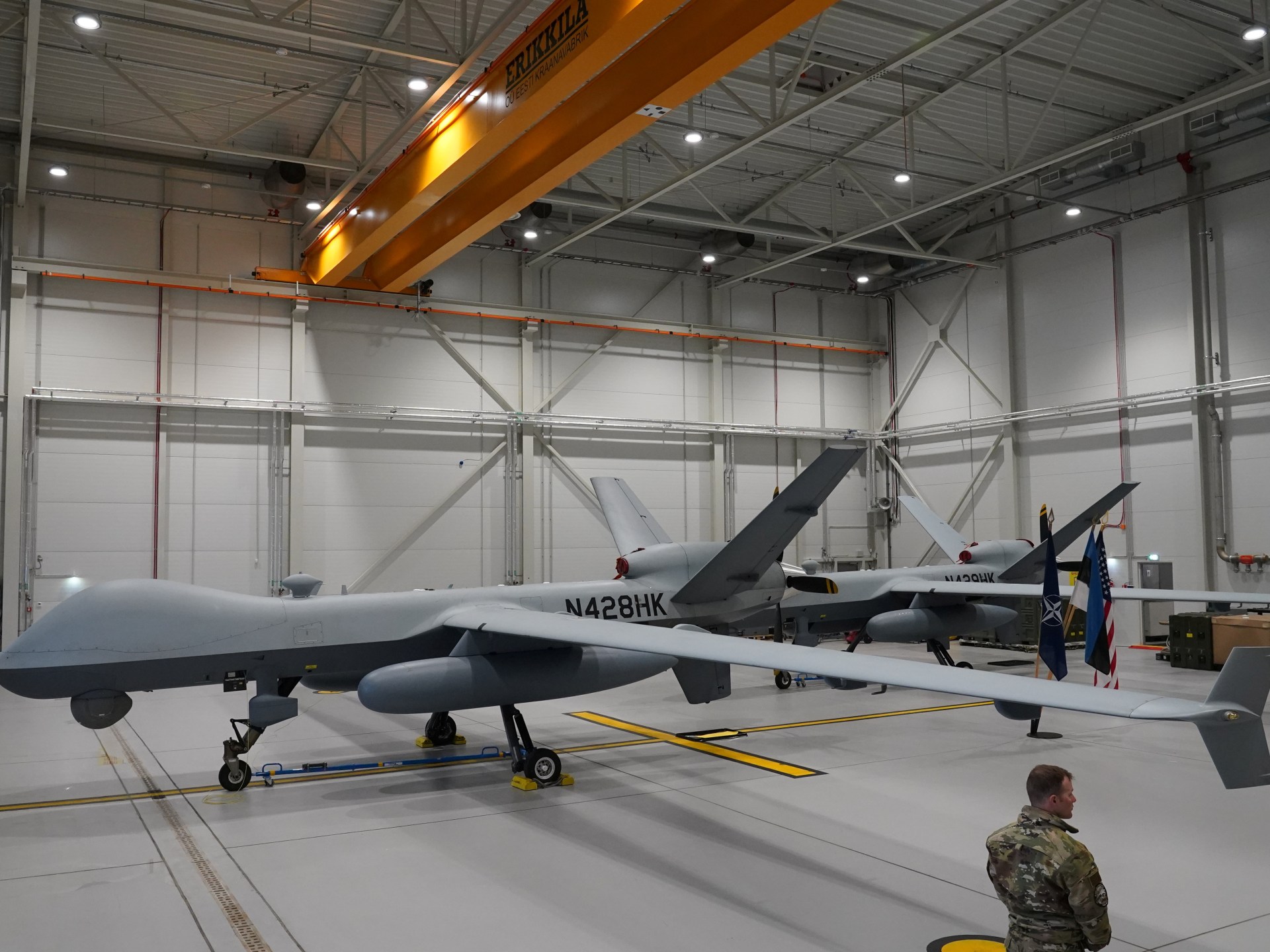US Navy works to keep sailors’ morale high amid challenging Red Sea Houthi campaign
Aboard the USS Dwight D. Eisenhower: When most readers come across news about the US military’s role in the Red Sea, the immediate image that comes to mind is fighter jets taking down Iran-backed threats, including anti-ship ballistic missiles launched by Yemen’s Houthi militia.
However, little attention is paid to the sacrifices made by the American sailors who have been deployed without a port call for more than five months now.
The difficult task of being at sea for such a long period, without seeing land, can have a significant physical and mental toll, especially when the average age of the 5,000 sailors onboard the Eisenhower aircraft carrier is just above 20 years old.
The taxing role of sailors – some of whom go weeks without seeing sunlight depending on their task on the nuclear-powered ship – does not go unnoticed by senior officers and commanders.
The commander of the Eisenhower aircraft carrier has been creative in lightening the mood and boosting morale. Capt. Christopher “Chowdah” Hill said the senior officers and officials tried to institute a philosophy on the ship called “the Way of the Warrior Sailor.”
“The hypothesis is that if we can improve morale to some degree, we’re going to have better combat success. We’ll also have success in other areas, such as mental health or resilience or doing well on inspections,” Hill said in an interview with Al Arabiya English from the Red Sea.
Some might ask what morale is and how one achieves it. For Hill and his sailors, morale is spirit, pride, and motivation. “We know that people will have bad days, but what’s going to get them through that day to the next day? That’s what we look at,” he said.
Quartermaster-1 Keith Woodcock admitted it was a challenging deployment with many long days, but he was upbeat and said it had been a fulfilling mission.
To boost the morale of the entire ship, Hill and his peers ask leaders to love and value every single person aboard so that every sailor feels loved and valued. “That’s not something you normally hear in a military context, but I think it’s a universal truth,” Hill said.
Hill said everyone must have a mission and a purpose so that each sailor knows their role within that larger mission. So far, “The Way of the Warrior Sailor,” which has been put together in a small pamphlet provided to the sailors, has worked.
“It is certainly working out here in the Red Sea in terms of how we’re operating. We’re very successful in accomplishing the mission every single day,” Hill said.
Other initiatives have included a room for sailors to relax, watch a movie, or even play video games if and when there is a chance for limited time off.
However, it’s not all fun and happy for everyone or every day. The military has invested in mental health professionals on the ship, including a psychologist, several doctors, several chaplains and other enlisted behavioral health technicians.
Last Saturday, the Pentagon announced the death of a sailor who was supporting operations in the Red Sea. The sailor was assigned to the USS Mason, one of four guided-missile destroyers, and part of the Eisenhower Carrier Strike Group. Sources familiar with the incident said the sailor died by suicide and left a note behind. The Pentagon said the sailor died on March 20, 2024, as a result of a non-combat-related incident that is being investigated.
Life on the destroyers, much smaller than an aircraft carrier, can prove even more challenging during such long and demanding deployments.
“Mental health problems are universal in the civilian world; we get that. It can be exacerbated by this sort of environment, whether it be the combat situation we’re in or the fact that we’ve been underway for more than five months,” Hill acknowledged.
Many sailors enlist in the Navy to be able to travel the world during their port calls. “It’s the quintessential Navy sailor experience,” Hill said.
With no port calls and an extended deployment, morale may be an issue for some. That’s where the resiliency safety net is used.
A US official said that Pentagon officials discussed the situation of the sailors deployed to the Red Sea during a meeting on Monday in Washington. Pentagon Press Secretary Maj. Gen. Pat Ryder declined to comment on potential moves or plans to replace the IKE with a different carrier strike group but said the US was always thinking about how to sustain its presence.
US officials estimate early summer as a realistic timeframe for the strike group to return home to Norfolk. Discussions will take place closer to that time about what kind of presence is needed, depending on the Houthi attacks and the war in Gaza. Whether or not there is a ceasefire between Israel and Hamas could impact this decision if the Houthis follow through on their claim that the attacks will stop once a ceasefire is reached.
A US official who spoke on condition of anonymity said that fewer US military ships could present fewer targets for the Iran-backed Houthis. This will all be determined by President Biden and his policy goals.
One of Hill’s tools to lighten the mood onboard has been to take advantage of the Wi-Fi provided to sailors. Commonly referred to as “Chowdah” because of his New England accent, Hill has amassed more than 65,000 followers on X.
Every sailor has long been provided an email address, but not every sailor had access to it. “With Wi-Fi, it’s kind of opened up that aperture of connectedness with folks back home,” Hill said. “The one thing I found is that some of my most successful sailors communicated with their mom or dad every single day. So, I realize that when we’re trying to create morale and a sense of being loved and valued … parents do a better job of that than I do.”
He frequently posts photos of young sailors to allow their friends and families to see them. The sailors often have a chocolate chip cookie in hand, which has become part of Eisenhower’s identity.
Hill calls sailors up to what is known as “the bridge,” where the captain typically sits to observe operations, and writes a caption for their loved ones back home to see.
The idea first came about when a parent of one of the sailors wrote to Hill and said they would love to see a picture of their son. He agreed and posted a photo on social media with a positive comment about the sailor. “And it just opened up the floodgates … with lots of parents requesting to see their sons and daughters. And it went from there,” he said.
What started off as messaging between a parent and their son soon became a message to the world.
“Here’s an ordinary sailor doing extraordinary things every single day, and they’re very young,” Hill said.
Rear Adm. Marc Miguez, the commander of the Eisenhower Carrier Strike Group, highlighted the availability of Wi-Fi. “It’s new for an old [man] like me, but some of that stuff matters to those young sailors, giving them the ability to just shoot a text once a day,” Miguez told Al Arabiya English.
Nevertheless, he has been forced to cut off the Wi-Fi service a few times as commander. “My utmost responsibility here [is to] protect the sailors and the equipment, but the sailors are first [priority],” Miguez said.
Woodcock, the QM-1, said he was excited to return to his family and friends eventually. “But home won’t go anywhere. We have a mission to get done,” he told Al Arabiya English.




















